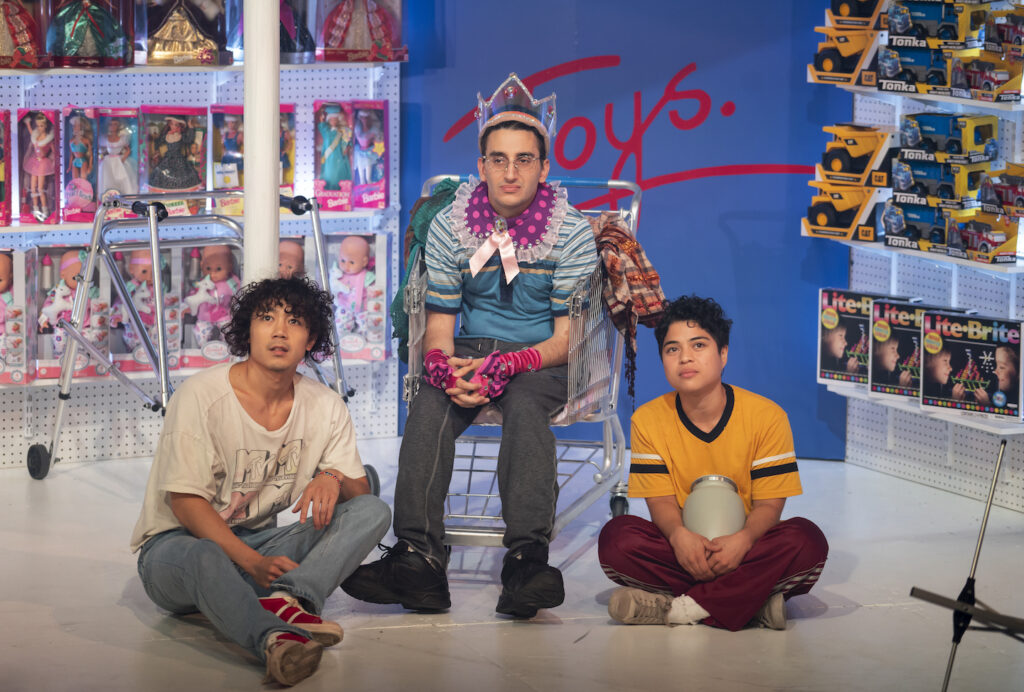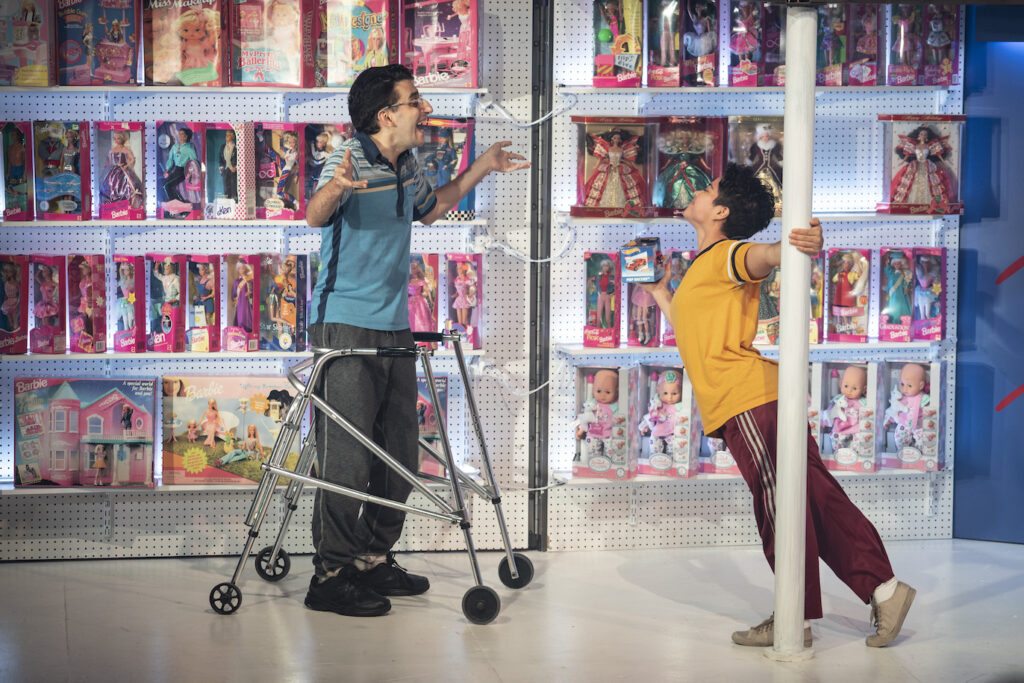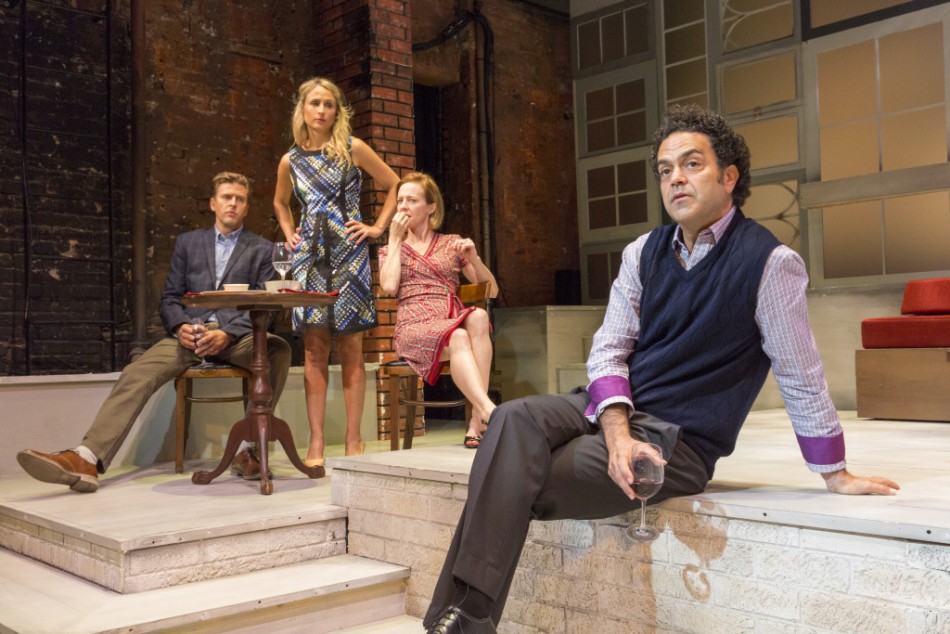By Brian Scott Lipton . . .
No one can accuse Victor I. Cazares of having nothing to say. In american (tele)visions, now premiering at New York Theater Workshop in a co-production with Theater Mitu, Cazares tackles a wealth of worthy theatrical topics, including the difficulty that immigrants (especially undocumented ones) have making a life for themselves in America; the Latinx predisposition against homosexuality, and America’s unhealthy appetite for consumerism and instant gratification. There’s enough food for thought in the work—essentially a memory play mostly set in the 1990s—to make up a multi-course meal.
And yet, the play doesn’t necessarily leave one satisfied. It runs barely 90 minutes, favors unnecessary repetitive use of dialogue, and is almost overwhelmed by Ruben Polendo’s inventive multimedia production, which often floods the wall of the Workshop space with memorable graphics and projections.

Indeed, many of the show’s visual effects, including the clever use of set designer Bretta Guerke’s four wooden cubes, a projected version of a 1990s-style Nintendo game, and some wonderful specialty costumes by Mondo Guana, are both funny and brilliant. But it all eventually seems a bit much. One wishes that Cazares had given the material a bit more depth and that the production lost some of its flash.
Luckily, a superb cast of five actors keeps the audience fully engaged. Blanca “b” Norwood, a non-binary performer, does the heaviest lifting as the show’s narrator, Erica, who is trying to make peace with her complex childhood. As we learn, she has been brought over from Mexico to Arkansas—the home of the world’s first Walmart (an important plot point)—along with her initially scared but ultimately headstrong mother Maria Ximena (Ella Monte-Brown, who seems to have transported herself straight from a telenovela) and older brother Alexander (Clew) to join their hard-working father Octavio (the excellent Raul Castillo), who has come to America in search of the proverbial better life.

Unfortunately, the once-happy family quickly fractures under the many strains of surviving in a strange land. Octavio, who works 10-hour days, ultimately becomes a shell of a man, interested only in television and beer, further alienating Maria, whose affections ultimately turn elsewhere and whose patience for poverty rapidly runs out.
Alexander, who has been forced to quit school to earn additional money for the family, falls into the arms of fellow factory worker Jesse (Clew, again), a Vietnamese immigrant he initially presents as simply a friend in need of a home. When the truth of their relationship finally comes out, the fallout is devastating.

Meanwhile, Erica, initially too young to understand everything around her, tries to be the glue to keep the family together while still being her own person—a tomboy who would prefer not to wear dresses to church and whose best friend is a flamboyantly gay teen named Jeremy (a superb Ryan J. Haddad, adding a bit of comic relief). As is expected, Erica’s family doesn’t approve of Jeremy, and, as we discover in one scene, neither does his own father.
Sadly, like much of american (tele)visions, it’s hard to say if this scene would play any differently in 2022 than it does in Cazares’ “memories” of the 1990s. Society, like television, too often favors reruns.
american (tele)visions. Through October 16 at New York Theatre Workshop (79 East 4th Street, between Bowery and Second Avenue). 100 minutes, no intermission. www.nytw.org
Photos: Joan Marcus



















